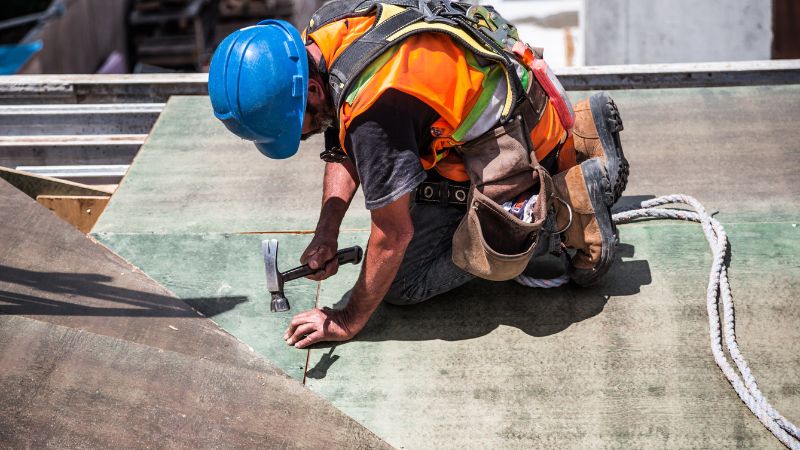Categories
UK mortgages for South African residents: expats and SA nationals

We can set up property finance for expat British nationals working in South Africa, as well as Britons and South Africans working for SA corporations in the UK and paid in rand, and South African nationals not resident in the UK.
The stability and profitability of the British property market have been an attractive proposition for investors who could afford to buy in, from Cape Town to Jo’burg, Port Elizabeth to Pretoria.
While the pound-to-rand rate has been slipping over the past couple of years, the sterling rate is also low on international markets, and UK interest rates are the most affordable they’ve been for decades.
Long drawn-out Brexit negotiations have had a depressing effect on UK property prices, with significant discounting, particularly on the highest-priced properties in London and the South East.
For those expat Brits and South Africans who can afford to buy, now’s the time to get into the market.
- Here are the 5 most important ways we can help you with UK mortgage finance
- And the 6 most likely scenarios we can help you with
And while you're here, check out our complete guide on UK mortgages for expats.
The short video below explains our services for expats in South Africa in more detail:
The 5 key ways we’re going to help you
1 Finding a willing lender
When most high street banks in the UK see a foreign address or foreign currency on an application form, they say No.
It’s too difficult for them. They’re concerned about what they see as increased administrative costs and risks, and they’re not set up to handle that.

Very often an underwriter is just guessing at your circumstances and makes a decision based on an assumption of maximum risk. For example, they’ll decide you’re an expat even if you return to the UK regularly and maintain home ties here.
We’ve had clients who have approached a different arm of the same banking group and been turned down, but we’ve made the right approach and got an offer for them.
We also have strong relationships with private, off-the-high-street lenders who have more flexible criteria and can also take a case-by-case approach when there are complex circumstances that need to be considered.
2 Avoiding penalties for mortgage payments paid in rand
Lenders take a number of steps to offset what they see as their greater risk with foreign currency mortgages:
- They may convert the value of the currency you’ll be sending to pay your mortgage using an on-the-spot rate at the time you make your application. Or they may take an average over the past five or 10 years.
- And/or they may take a flat-rate percentage slice of up to 20% off your income to allow for currency fluctuations. Which dramatically reduces the amount you’re able to borrow.

Fewer lenders in the market have reduced the pressure to keep expat and foreign national interest rates competitive – which just means that brokers such as Clifton Private Finance need to work harder on your behalf.
We will source the lender who will take the least-punitive approach to foreign currency calculations for your particular circumstances.
3 Satisfying anti-money-laundering regulations
UK nationals living in the UK and applying for UK mortgage finance usually only have to provide just one payslip and one month’s bank records to support their application. And most of their documentation can be submitted online. So far, so simple
But the international Financial Action Task Force (FATF) regulations that the UK is a signatory to, for preventing international money-laundering and the funding of terrorism, are necessarily rigorous. And borrowers from countries that don't meet the same standards of regulation can find their UK borrowing options restricted.
Fortunately, South Africa also meets the requirements for FATF, as well as being part of the Eastern and Southern Africa Anti Money Laundering Group.

For an expat mortgage in the UK you’ll usually need to provide:
- Three months of statements for each one of your bank accounts.
- Plus three months’ proof of the source of your deposit, including any account that it has been transferred from.
In addition, most expat lenders will require "wet signature" documents (rather than email submission) for:
- direct debits
- declarations
- acceptance of an offer
In addition, for proof of identity a lender may require
- proof of address, including utility bills in your name, relating to your South African residential address
- if you use a PO Box for mail deliveries (as is common in many expatriate destinations) this complicates matters, but we can advise on the supporting proofs you may need
These issues are no great drama to work around. But if you don’t have an experienced broker handling your application, each of these delays in supplying documentation in the correct format can add another week to your application.
4 Sorting out your credit score
Your mortgage eligibility, and the rates you’ll be offered, are heavily dependent on your UK credit score – and that’s completely independent of your South African banking and credit records. For British expat applicants, here’s what you need:
- An active UK bank account
- An active UK credit card with regular transactions and repayments
- A clean (or almost-clean) credit score with the three UK credit agencies
For British expats residents in South Africa, this shouldn’t be a problem, though you may not be putting regular payments through your UK account.
We can advise you on how to address any problems with your credit record. We use the same credit-check system as many of the lenders we work with, so we can see the same issues that they see.
The common bugbear: a mobile phone contract you believed you had terminated, and for which you cancelled the direct debit, which is still being claimed against your account.
If your credit issues can’t be resolved just by updating your records with the three credit agencies, we can take your application to a lender that’s willing to consider clients with less-than-perfect credit scores.
For South African nationals, we will be looking for at the (more limited number of) lenders who are able to consider foreign national clients with no UK credit footprint. The rates offered may be rather less generous, but lending is possible.

5 Getting you the best rate
Don’t base your expectations on the mortgage rates that friends and colleagues back in the UK are paying. If you need to have an expat mortgage, expect to be paying approximately 1% above UK domestic rates.
We know you’d like to see some interest rates quoted here. But they would be largely meaningless: the rates you’ll be offered will be completely dependent on:
- how much you want to borrow in total
- what percentage deposit you can put down
- your income eligibility
- how you’re going to be paying for your mortgage (what currency)
We’ll look at the detail of those and then take your application to the lender who will offer the best deal for your combination of circumstances.
And we’ll be including in that review of the market not just high-street banks but specialist lenders who have more flexible criteria.
We’ll also advise you on the additional costs that could influence your decision: application fees, lender fees, survey and legal costs… Some lenders offer free legals, or reduced valuation fees which can add up to savings of thousands of pounds.
Over the short-term (say, if you’re looking for a fixed-rate period of two or three years, and then expect to remortgage) fee savings could have a more significant impact on your borrowing costs than interest rates.
The 6 scenarios we can help you with
1 Get a better mortgage rate on your UK home
- Your fixed-rate mortgage deal has come to an end and your UK mortgage has reverted to your lender’s standard variable rate (SVR) – which could be a hefty 3.5% to 5.5% or more.
It’s easy to let paperwork slide for a couple a weeks when you’re dealing with property issues from outside the UK. But that punitive rate quickly adds up, so we need to get you off it as soon as possible.

Rates for expats are higher for non-UK residents to take account of the extra administrative work involved, and the added risk for the lender. (If for any reason a borrower does default on their mortgage, it will be harder for a bank to track them down if they’re out of the country.)
But we can still save you money compared with a default rate – and get you on the right kind of mortgage.
2 Remortgage your UK home as a rental property
- You rented out your home when you moved to South Africa (hopefully with a Consent to Let from your mortgage lender) and now you need to remortgage.
If you want to continue letting out the property you’ll need to regularise the arrangement with a Buy to Let (BTL) mortgage – not least to keep you compliant with the terms of your mortgage agreement, and to ensure that your insurance is valid. (Specialist landlord insurance is available.)
BTL finance uses different affordability criteria, and the rates are higher – in theory, because they’re riskier, but also – let’s be honest – because lenders want a share of the income their capital is helping to generate.
Most expats look for a specialist broker such as Clifton Private Finance to do the shopping-around UK lenders for them and to recommend the best rates and terms.

3 Remortgage your UK property to release capital
You may be looking for capital because:
- You want to buy an investment property in the UK
- You want to release some debt / supplement your retirement income
- You want to purchase a property in South Africa
If the value of your property has increased since you took out this mortgage, you can either:
- remortgage at the lower loan-to-value ratio (LTV) to get better a better interest rate
- or remortgage at the same LTV, or only slightly lower, and release some cash
A lender will want to know what you’re wanting to spend the money on.
Property purchase or improvements: yes. Paying off a credit card: yes. Paying off a number of credit cards when it’s clear you’ve been living off short-term credit month-to-month: no.
Different lenders’ criteria differ, so you’ll need good advice to know where to go to, and how to structure it.

4 Buy a second home in the UK
- You’ve relocated to South Africa but you want to buy a property back in the UK for your own use on return trips
- You want to buy accommodation for children who are students or in their first jobs
If you want to keep the property available for family use, rather than let it out, a lender will need to be assured that it will be regularly inspected and kept secure and in good repair.
We can advise on how to satisfy their requirements, either by having family nearby who will check the property regularly or by employing a supervising agent.
5 Buy a UK property to rent out
- If you’re keen to invest in property, as an expatriate Briton it pays to buy in a market that you know and understand
- Residential UK properties return reliable rental yields
- A good variety of commercial properties available for investment
The possibility of travel restrictions, the cost of flights, and the ZAR-sterling exchange rate can all persuade you that investing in the UK is the safest place to put your money, with transparent and secure legal and planning processes.
UK lenders are the funding sources most familiar with the UK property market, and the process will be streamlined when you’re matched to the lender who’s the closest fit for your criteria.

6 Buy a property to return in the UK
- You’re planning to return to the UK, for business, family or health reasons, and want a home to return to
Applicants who are currently residents outside the UK will usually be directed straight towards expatriate lending. You need experienced advice if you’re to get the best local-rate sterling mortgage you might be eligible for.
In order to qualify for a UK resident mortgage you either need to be:
- Living back in the UK for six months
- Returning to the UK within six months, with a fixed return date
- Returning to the UK at some point in the near future, with a firm job offer and salary confirmation (salary may be in ZAR)
We can identify the lenders who’ll be most amenable to your particular circumstances and match you to the best rate in the market.
Contact us to find the most competitive mortgage finance for you
Arranging mortgage finance in the UK from South African should be no more complicated than a few phone calls and emails with us.
- We know the specialist lenders in the market, who may not be available to walk-up applicants.
- We know how to package your application to suit the lender who could offer the best terms for you.
- And we can make this happen quickly: we can usually get pre-approval of an offer for you within 24 hours, so you don’t miss out on any opportunities.
To talk to a specialist advisor who’ll get inside the details of your situation to come up with the best finance solution:
Book a telephone consultation for a time that suits you:
Or call us now:
+44 203 900 4322
READ ALSO:
Our blog about your mortgage document checklist
More about buy-to-let mortgages for expats









